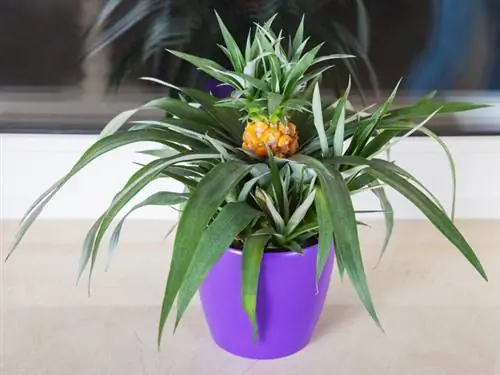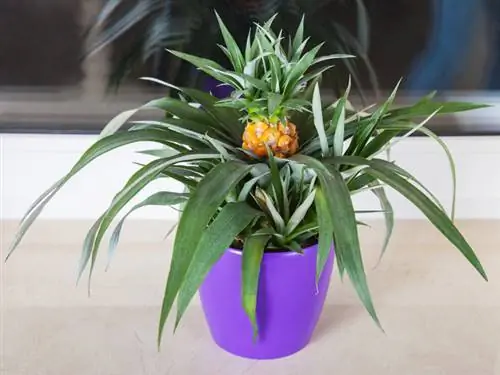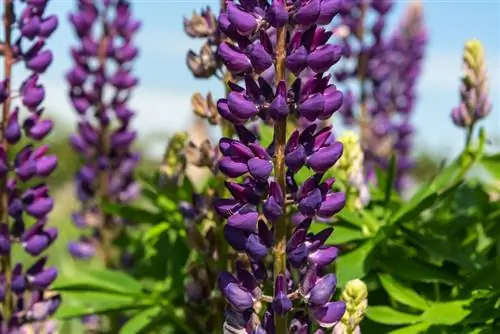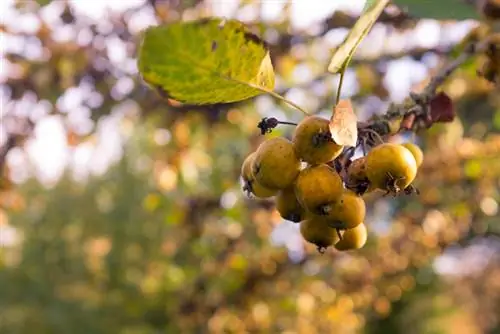- Author admin [email protected].
- Public 2023-12-16 16:46.
- Last modified 2025-06-01 06:02.
With sharp spines along the edges of the leaves, the bromeliad often has clearly visible reinforcement that needs to be taken into account when caring for it. Consequently, the question arises as to whether the tropical pineapple plants also contain toxic ingredients. Find out here to what extent bromeliads are dangerous for humans and animals.

Are bromeliads poisonous to humans and animals?
Generally, bromeliads are non-toxic to humans and animals. However, eating an unripe pineapple, which belongs to the bromeliad family, can cause stomach cramps and diarrhea in sensitive people or cause miscarriage in pregnant women.
Bromeliad is not poisonous - with one exception
Cautious home gardeners usually approach a bromeliad with protective gloves (€9.00 on Amazon) so as not to injure themselves on the thorny edges of the leaves. No additional precautionary measures need to be taken as the tropical jewelry does not contain any toxic ingredients. However, if you succeed in the feat of growing a pineapple, the only exception is a slight poisonous content in the kingdom of bromeliads:
- Unripe pineapples cause stomach cramps and diarrhea in sensitive people
- Pregnant women can suffer a miscarriage after eating an unripe fruit
Before you eat a pineapple fruit, please check the level of ripeness. A ripe fruit exudes an aromatic scent. Its leaves are green and juicy. Ideally, individual leaves can be pulled out of the foliage without any effort. As a precaution, subject store-bought pineapples to this test as well. On the plantations, the fruits are generally harvested unripe and treated with ethylene during transport to encourage the ripening process. Of course, this plan doesn't always work.
Tip
Instead of spreading fear and terror with toxic ingredients, the bromeliad offers numerous microorganisms a protected habitat. With their decorative leaves, most types of bromeliads form a funnel in which water and humus accumulate. This creates a mini pond that insects, tadpoles and other animals will appreciate.






